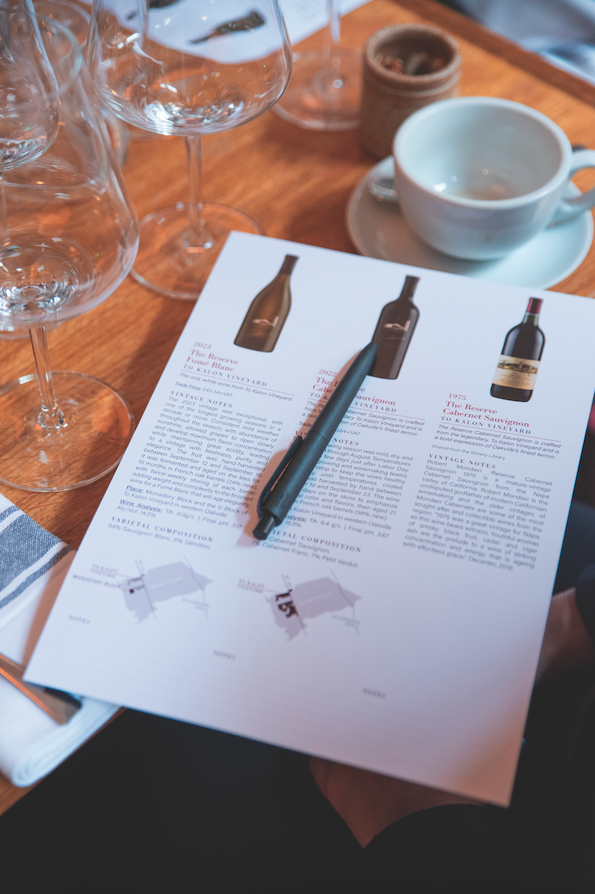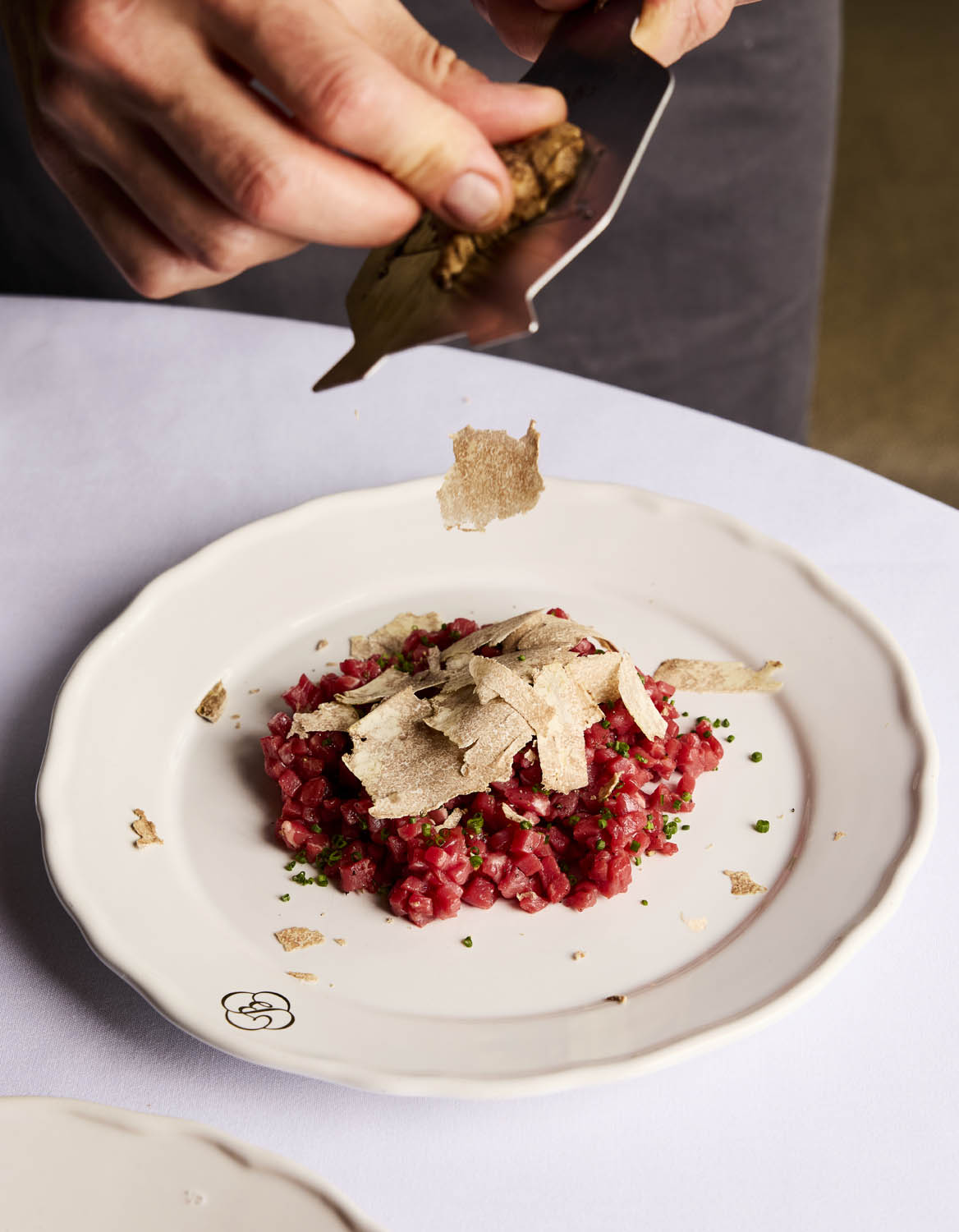Distell’s Global Focus Continues
Distell is South Africa’s largest producer of wine, with a robust portfolio of premium brands. It has now streamlined its operations to achieve significant growth in the UK and mainland Europe
THERE’S AN old adage in marketing that says if your competitor is bigger than you, you have to try harder. And that is precisely what Distell, South Africa’s leading producer of wines and spirits is doing in tackling foreign markets.
Established just two years ago, with the merger of the longestablished Stellenbosch Farmers’ Winery and Distillers’ Corporation, Distell has been modeled as a global business and has succeeded in acquiring listings worldwide to build brands that are growing in visibility.
From its inception, Distell’s focus has been on international trading, strengthening its portfolio of fighting global and niched, luxury brands with a sound and smart infrastructure to support its forays into major markets such as the UK, Europe and North America.
Says Peter Hafner global marketing manager: wines "Key to our activities is the issue of sustainability. We are in the business for the long-term and are determined to build turnover and international exposure in a way that is viable both for the company and our trading partners. Central to our ethos is achieving results that are positive for our brands and our customers.
Consequently our focus is on providing a highly competitive value formula that includes an outstanding price/quality ratio, clearly articulated positioning, appropriate marketing and sales support and the right logistics."
Currently well over 5 million cases of premium, super-premium and ultra-premium wines combined are produced annually by the group. Distell owns some of the country’s top rated vineyards, in prime wine growing areas such as Stellenbosch, Simondium, Durbanville and Darling, and has evolved strategic alliances with supplier wine growers and producers in these and other key areas, in some instances promoting black economic empowerment through specially created shareholding schemes to advance black ownership in the South African wine industry.
It has also played a major role in opening up new winegrowing areas to generate supplies for its top end wines and when a substantial vineyard development programme, already underway, comes into full production by 2007, an additional 6000 tons will be harvested from Darling, Philadelphia, Durbanville, Stellenbosch and Gansbaai.
Group winemaker, Linley Schultz, has extensive exposure to international wine markets. An Australian, who was previously with BRL Hardy, he has worked in Europe and was at one time based in the UK. He heads a team of youthful and dynamic winemakers, many of whom have worked internationally to broaden their experience.
Well versed in classical and modern winemaking, their brief is to create wines for international palates that express the biodiversity of the Cape and the myriad opportunities such diversity offers in terms of varietals and winemaking styles.
They are supported by several world-class consultants, including Paul Pontallier, director of Chateau Margaux and two other worldrenowned French oenologists who visit Distell’s boutique wineries several times a year.
They are Jean Louis Mandrau, formerly the technical director of Chateau Latour, and Pascal Chatonnet, widely acknowledged for his pioneering research into wood maturation of wines and who is based in Bordeaux.
Partner Content
The company’s wine portfolio offers variety across a range of price points and the flexibility to address differing market needs, from global, lifestyle brands, such as Nederburg, Two Oceans, Fleur du Cap and Drostdy-Hof, to wines created in concert with retailers for specific consumer profiles like Table Mountain, Oracle and Obikwa and hand-crafted, more specialist wines from Stellenzicht, Plaisir de Merle, Neethlingshof and Le Bonheur.
Several of these brands are tiered to afford a wider reach. Nederburg, for instance, produces a Private Bin label of connoisseur wines, hand-crafted by an award-winning team from single vineyards, exotic varietals or created as flagship blends. It also offers the very versatile Classic collection of varietal and blended wines.
Throughout the range, however, its hallmark is classical structure, with clearly defined fruit flavours. Similarly, Durbanville Hills is tiered into a vineyard-selected label with names that reflect the long-standing history of this cool-climate region; the limited-edition Rhinofields selection and the Premium range, with each expressing the distinctively cool-climate characteristics of Durbanville.
Fleur du Cap’s showcase is the reserve Unfiltered range that eloquently reflects the Cape’s biodiversity, supported by a regular range of pleasingly accessible varietal wines for all occasions.
Others, like Two Oceans, a brand that exemplifies South Africa’s laid-back but stylish café lifestyle and the more traditional Drostdy-Hof are geared for versatility. Two Oceans has found increasing acceptance in wine bars and shopping baskets, while Drostdy-Hof is packaged in a variety of formats dictated by its market, including the pub-sized 187-ml, the regular 750-ml bottle and the 3-litre bag-in-box.
Hafner says, "Our mandate is to over-deliver on quality to get noticed, become accepted and strengthen relationships. We apply this approach in all our markets, even domestically, where we are the leading force in the industry. Complacency is not a word in our vocabulary."
His stance is borne out by the massive investment made to enhance relationships at every point in the supply chain. The marketing team has been strengthened with an injection of new skills. "Our team members include people who have come from the arenas of law, finance, market research, advertising, winemaking, travel and hospitality and many have worked abroad.
These skills help us better understand our markets and address their needs more inventively and efficiently." And at the same time, Distell has beefed up its foreign offices with the appointment of new sales teams and key account managers to service specific markets both on and offconsumption, as well as by appointing world-class agents, all directed at enhancing service delivery and marketing thrust.
Logistics have also been a major focus for Distell to cater to customers’ just-in-time delivery demands, as well as to anticipate and meet the growing supply needs of target markets. That the company is succeeding is amply borne out by the ever-increasing listings in the UK (Asda, Oddbins, Morrisons, Virgin Online), Europe (Metro, Makro, Systembolaget, Vinmonopolet and others) and North America (Albertons Inc, Liquor Control Board of Ontario) as well as swelling representation in specialist stores and upmarket eateries throughout these markets with brands like Stellenzicht, Neethlingshof and Plaisir de Merle.
But rather than resting on its laurels, Distell believes the potential unlocked thus far is just the beginning. "It’s a matter of principle to keep on trying harder", asserts Hafner. "It keeps us innovative, makes us more insightful and improves our competitive edge."ble through selected UK importers




